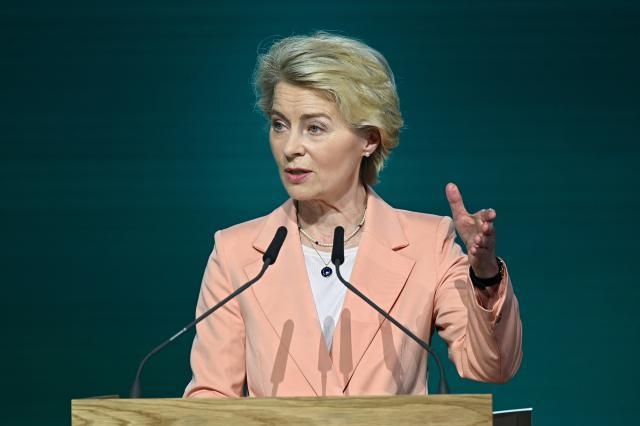In Dresden, President von der Leyen focuses on Europe's digital excellence and investments in semiconductor production
Read more on or follow

On 2 May in Dresden, Germany, President of the European Commission Ursula von der Leyen took part in the groundbreaking ceremony for a new plant of Infineon Technologies AG, Germany's largest semiconductor manufacturer. Speaking at the ceremony, she focused on the digital excellence ‘made in Europe', the European Chips Act, as well as ways to ensure the EU's access to critical raw materials, to make sure the technological success is lasting.
“Europe's strengths lie not only in digital applications. Our research and development into semiconductors is recognised the world over. We build incredible supercomputers”, she said. “The market leader in specialised chip-manufacturing equipment supplies the entire world from Europe. Not only ‘Silicon Saxony' but place names such as Leuven (IMEC), Eindhoven (ASML), Grenoble (research) and Barcelona (supercomputers) have an outstanding reputation on the global digital scene.”
She however stressed the need to strengthen the supply chains of the most important goods and technologies and increase the EU's own capacity for mass production of semiconductors.
The European Chips Act aims to help achieve that specific objective, increasing domestic production. “For the European Chips Act, we – the EU and the Member States – are spending up to EUR 43 billion. By 2030 we want, together with industry, to double Europe's share of global chip production to 20%,” the President explained.
For that to happen, the EU needs to quadruple its current capacity, and do it in close interaction with strong companies, such as Infineon, she stressed. “Dresden and Silicon Saxony are a symbol of the fact that Europe can compete as a location if we shape the framework wisely. It is no coincidence that it is precisely in this area that Infineon is making the largest single investment in the company's history. The term ‘Silicon Saxony' is based on good cooperation between business and science in and around Dresden, Leipzig and Chemnitz. It is based on close interaction between innovative start-ups and established global market leaders.”
She concluded by focusing on the need to ensure access to raw materials needed for tomorrow's economy and the goals of the EU's Critical Raw Materials Act. “The dependence on individual raw material suppliers is a risk. That is why we want to use new projects in Europe, but also partnerships with countries such as Australia, USA and Canada, to create alternatives in order to secure the supply chains of European companies.”
